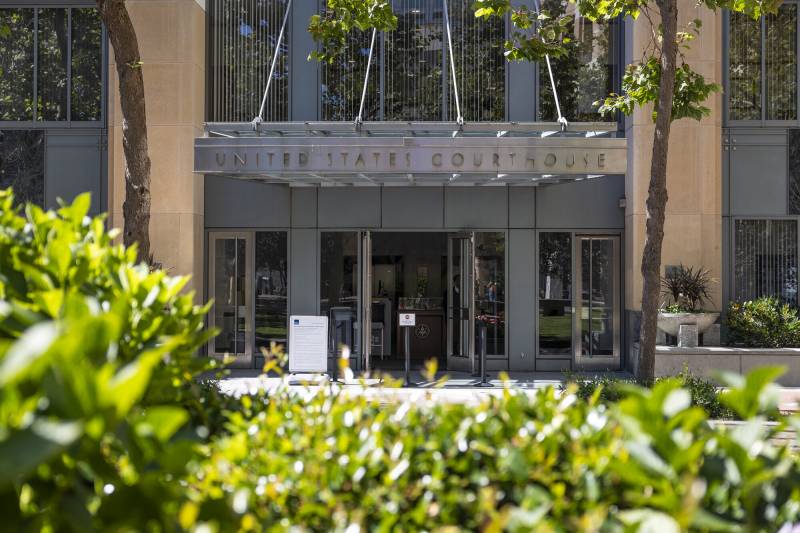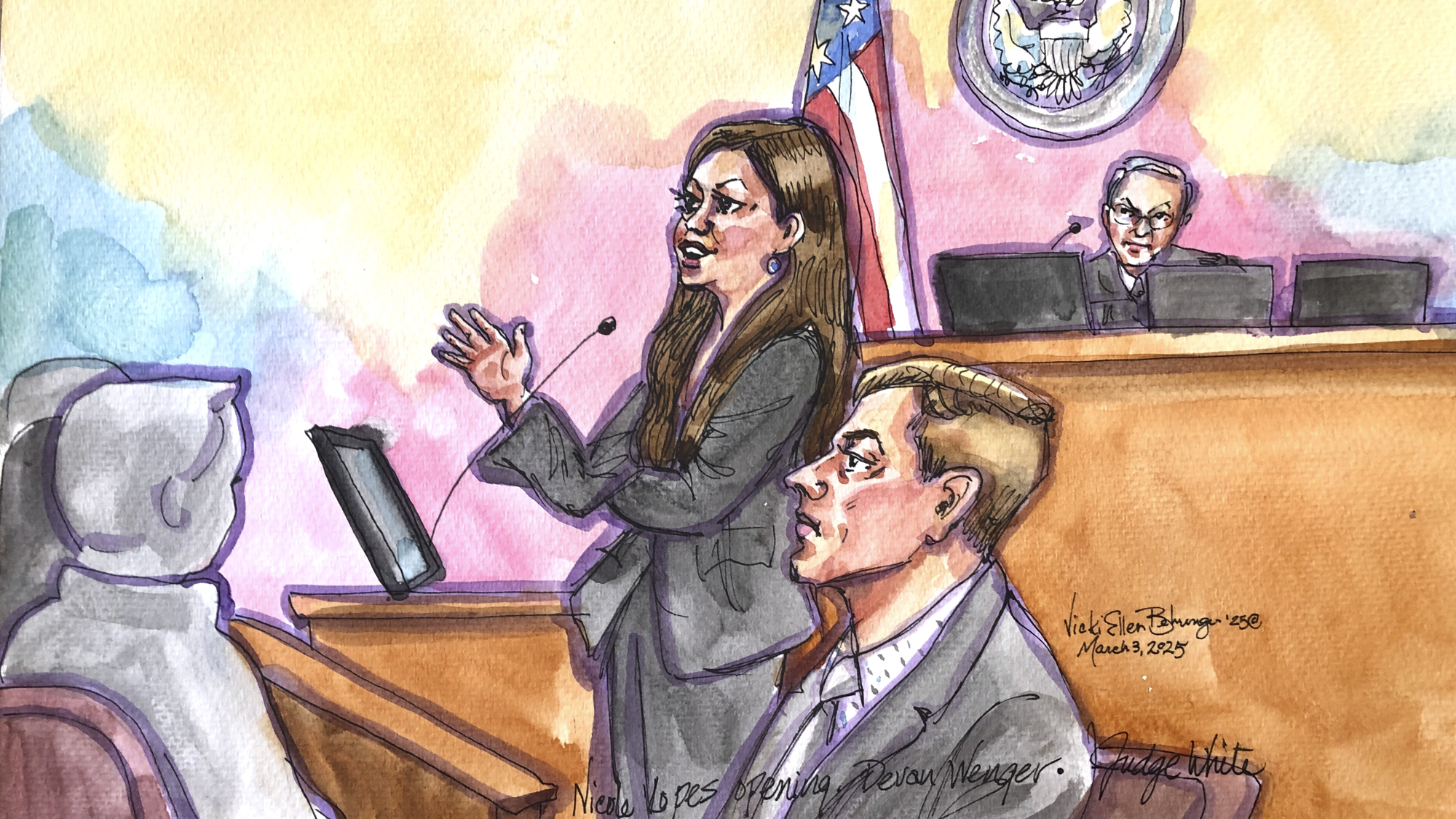“I’m tired of being lean. I just want to be a fucking animal,” Wenger texted Harris.
“Well you are an animal. We can just make you a bigger more vascular animal. Lol,” Harris replied.
A year later, Antioch police were embroiled in a scandal involving racist texts and memes about citizens and city officials that were exchanged by more than half of the department, but no one reported it to the appropriate authorities. A federal investigation into the texts led to charges against multiple officers.
In his current trial, federal prosecutors alleged that when FBI agents went to Wenger’s home in 2022 with a warrant to seize his phone, he deleted key information, including texts about steroids, Harris’ number and contact from Venmo, the financial app used to pay for the shipments.
“Wenger was a trained police officer. He knew how controlled substance investigations work. He also knew he committed a crime,” Krishnamurthy told jurors.
Dena Marie Young, Wenger’s attorney, wanted jurors to weigh the prosecution’s evidence carefully, including what texts were missing from the government’s attempts to retrieve them.
“What we have left are a series of messages that have been put back together by the government and are being interpreted by the government in a way that best suits their case,” Young said.
She painted Harris as a self-serving drug dealer and said Wenger’s involvement in any transaction between Harris and Mahoney was “just a friend doing a friend a favor.”
Young also highlighted how the FBI attempted to retrieve Wenger’s phone from him by sending a SWAT team to his door, saying it was a “dog and pony show” meant to intimidate Wenger, who wasn’t even at his residence when authorities showed up looking for him.
“The reality is, they didn’t even check to see if he was home,” Young said.
Walking with Wenger outside the courtroom, Young declined to comment on behalf of the former officer.
“We have to respect the decision of the jury,” Young told reporters.
Wenger is due back in court on Tuesday for a scheduling conference for his other outstanding criminal trial and whether he should be held in custody before his sentencing hearing, which White said will occur when both cases have concluded.
KQED’s Sara Hossaini contributed to this report.



